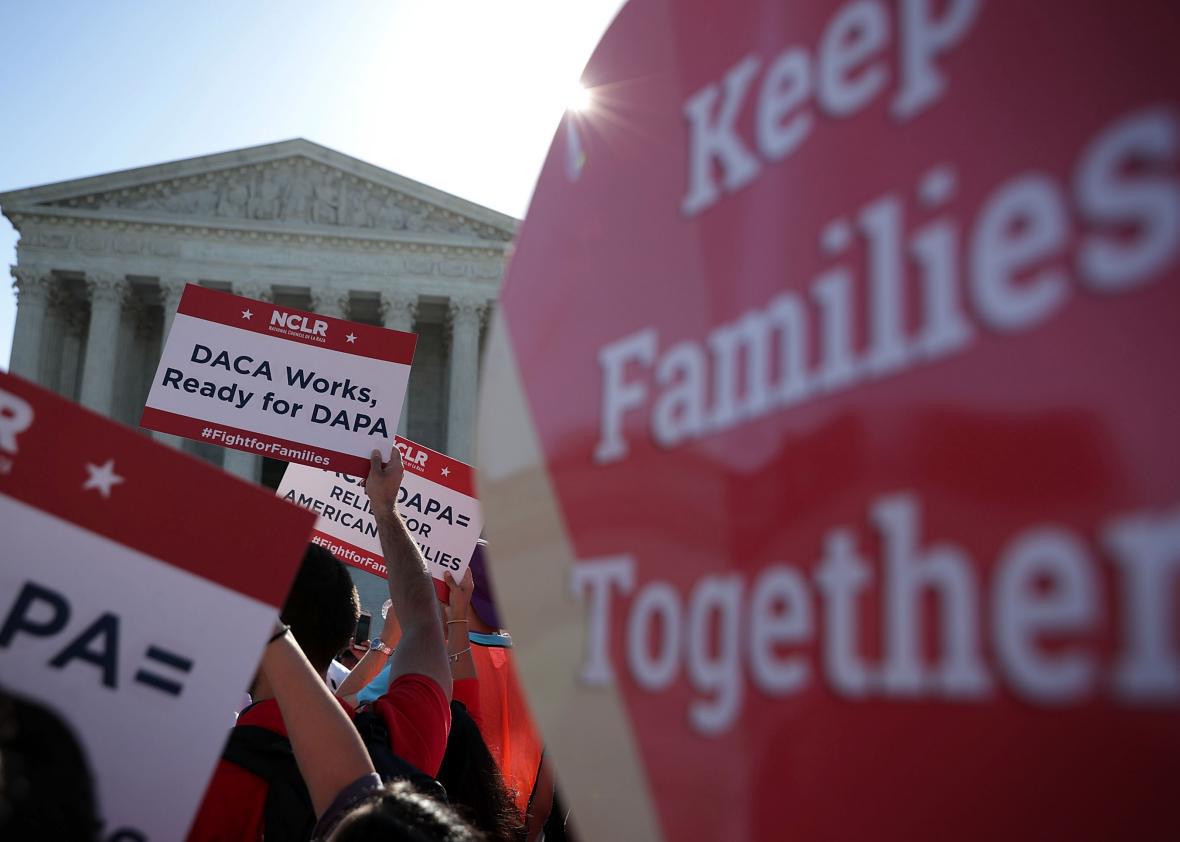The Supreme Court handed down a tied vote in United States v. Texas on Thursday, effectively blocking President Barack Obama’s immigration executive actions from taking effect.
Obama’s contested action, called DAPA, would have deferred the deportation of the undocumented parents of citizens or lawful permanent residents. Texas, along with 25 states, sued to stop DAPA from going into effect, arguing that Obama had overstepped his executive authority. U.S. District Court Judge Andrew Hanen issued a nationwide injunction enjoining the plan from taking effect; a panel on the 5th U.S. Circuit Court of Appeals affirmed. By dividing equally on the case, the Supreme Court affirmed the lower court’s ruling without setting any precedent.
What happens now? Presumably, Hanen will proceed with a trial on the merits of the case. That trial will almost certainly result in a loss for the federal government, given Hanen’s pronounced anti-immigration bent; the feds will then appeal that loss to the 5th Circuit. When the very conservative 5th Circuit inevitably rules against the federal government once again, the case may return to the Supreme Court. At that point, our best hope is that there are nine justices who can actually decide this case once and for all.
That means, of course, that whoever is next appointed to the Supreme Court will tip the balance in United States v. Texas, thereby deciding the fate of 4.3 million people. The pressure to confirm Merrick Garland—or keep him off the bench—just increased by orders of magnitude.
